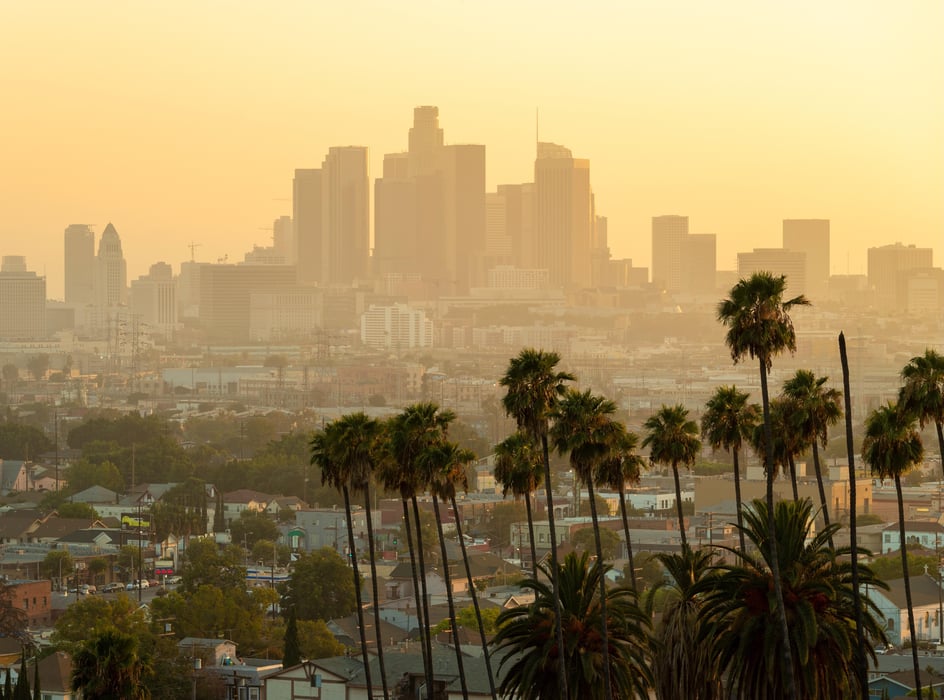Smoggy Air Could Worsen COVID, Even If You’re Vaccinated

MONDAY, Oct. 3, 2022 (HealthDay News) -- Exposure to air pollution can impede COVID-19 recovery, whether someone is vaccinated or not, according to new research.
"These findings are important because they show that, while COVID-19 vaccines are successful at reducing the risk of hospitalization, people who are vaccinated and exposed to polluted air are still at increased risk for worse outcomes than vaccinated people not exposed to air pollution," said study co-author Anny Xiang, a senior research scientist at Kaiser Permanente Southern California.
Researchers analyzed medical records from patients in the Kaiser Permanente Southern California health system. This included more than 50,000 patients 12 and older diagnosed with COVID-19 in July or August 2021, while the Delta variant was spreading. About 34% had been fully vaccinated.
The team included researchers from the University of Southern California Keck School of Medicine. Using street addresses and air quality data, they determined the patients' exposure to fine particles known as PM2.5, nitrogen dioxide (NO2) and ozone (O3) levels one month before COVID diagnosis and a year earlier.
After determining that vaccines made a difference in risk of hospitalization, the researchers also found that even among vaccinated people, exposure to two of those pollutants -- PM2.5 and nitrogen dioxide -- upped the risk of hospitalization up to 30%.
"Fully vaccinated people had almost 90% reduced risk of COVID hospitalization, and even partially vaccinated people had about 50% less risk,” said co-author Zhanghua Chen, assistant professor of population and public health sciences at Keck.
Yet exposure to pollutants was still harmful.
"Among vaccinated people, the detrimental effect of air pollution exposure is a little smaller, compared to people who were not vaccinated," Chen said in a USC news release. "But that difference is not statistically significant."
Short-term exposure may worsen lung inflammation and alter the immune response, according to the study. Long-term exposure is linked to heart and lung diseases, and more severe COVID symptoms.
In the nearly 31,000 study participants who were not vaccinated, high short-term PM2.5 exposure increased the risk of COVID-19 hospitalizations by 13%. Long-term exposure increased the risk by 24%.
For nitrogen dioxide, risks increased by 14% and 22% with short- and long-term exposure, respectively. The study did not find significant associations between ozone levels and COVID hospitalizations.
The findings were published recently in the American Journal of Respiratory and Critical Care Medicine.
More information
The U.S. Environmental Protection Agency has more on air pollution.
SOURCE: University of Southern California Keck School of Medicine of USC, news release, Sept. 28, 2022
Related Posts
Persistent Racial/Ethnic Disparities Seen in Flu Vaccine Coverage
FRIDAY, Oct. 21, 2022 (HealthDay News) -- Racial and ethnic disparities in U.S....
Radiation Therapy Can Safely Be Cut in Half for Patients With Early Breast Cancer
WEDNESDAY, Oct. 26, 2022 (HealthDay News) -- Women with early-stage breast...
COVID Rebound Not Limited to Those Who Took Paxlovid
WEDNESDAY, Aug. 3, 2022 (HealthDay News) -- COVID rebound, which struck both...
Less Salt, More Potassium for a Healthier Heart: Study
MONDAY, Nov. 15, 2021 (HealthDay News) – You might want to put the salt shaker...
